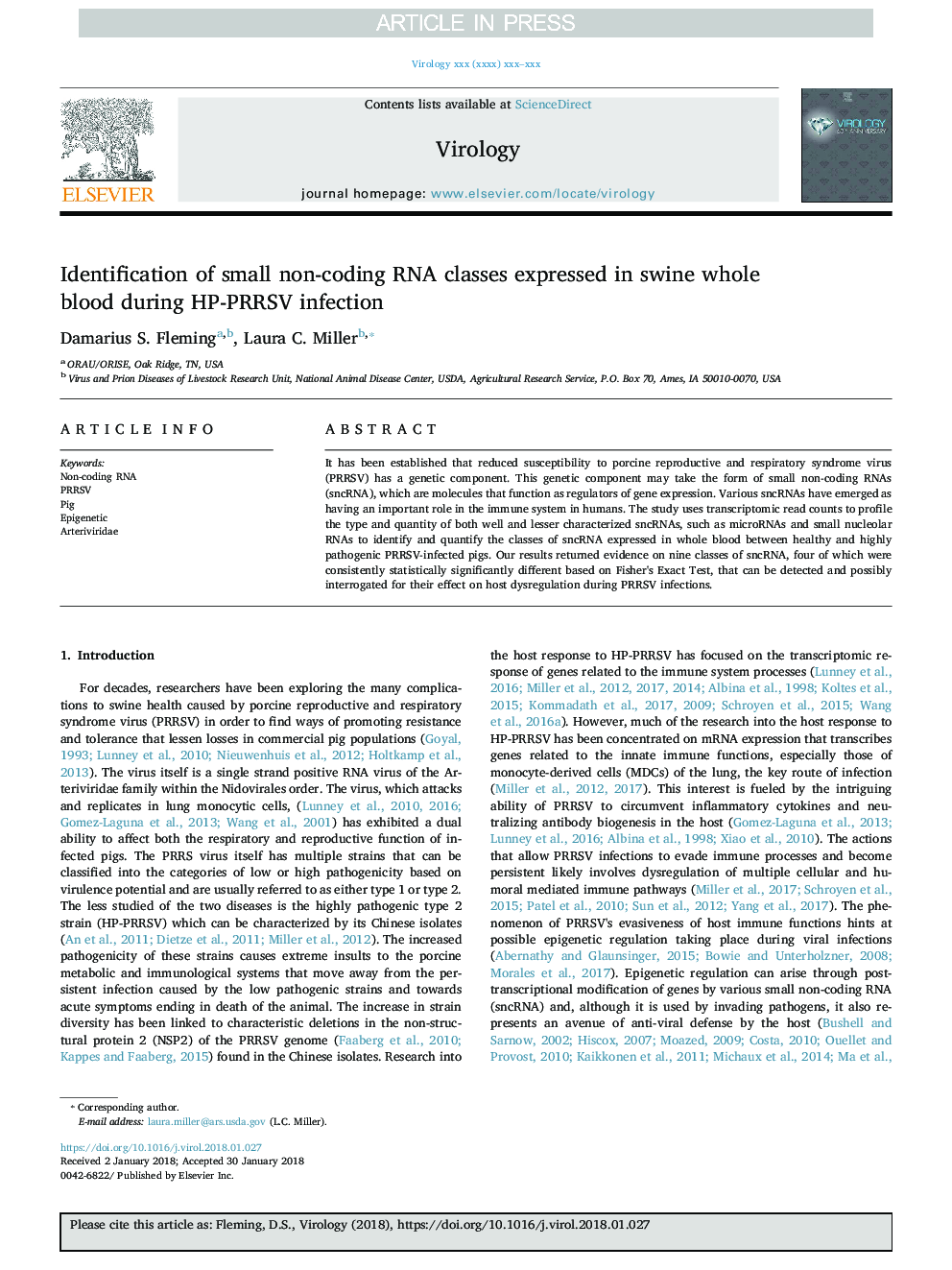| Article ID | Journal | Published Year | Pages | File Type |
|---|---|---|---|---|
| 8751497 | Virology | 2018 | 6 Pages |
Abstract
It has been established that reduced susceptibility to porcine reproductive and respiratory syndrome virus (PRRSV) has a genetic component. This genetic component may take the form of small non-coding RNAs (sncRNA), which are molecules that function as regulators of gene expression. Various sncRNAs have emerged as having an important role in the immune system in humans. The study uses transcriptomic read counts to profile the type and quantity of both well and lesser characterized sncRNAs, such as microRNAs and small nucleolar RNAs to identify and quantify the classes of sncRNA expressed in whole blood between healthy and highly pathogenic PRRSV-infected pigs. Our results returned evidence on nine classes of sncRNA, four of which were consistently statistically significantly different based on Fisher's Exact Test, that can be detected and possibly interrogated for their effect on host dysregulation during PRRSV infections.
Related Topics
Life Sciences
Immunology and Microbiology
Virology
Authors
Damarius S. Fleming, Laura C. Miller,
